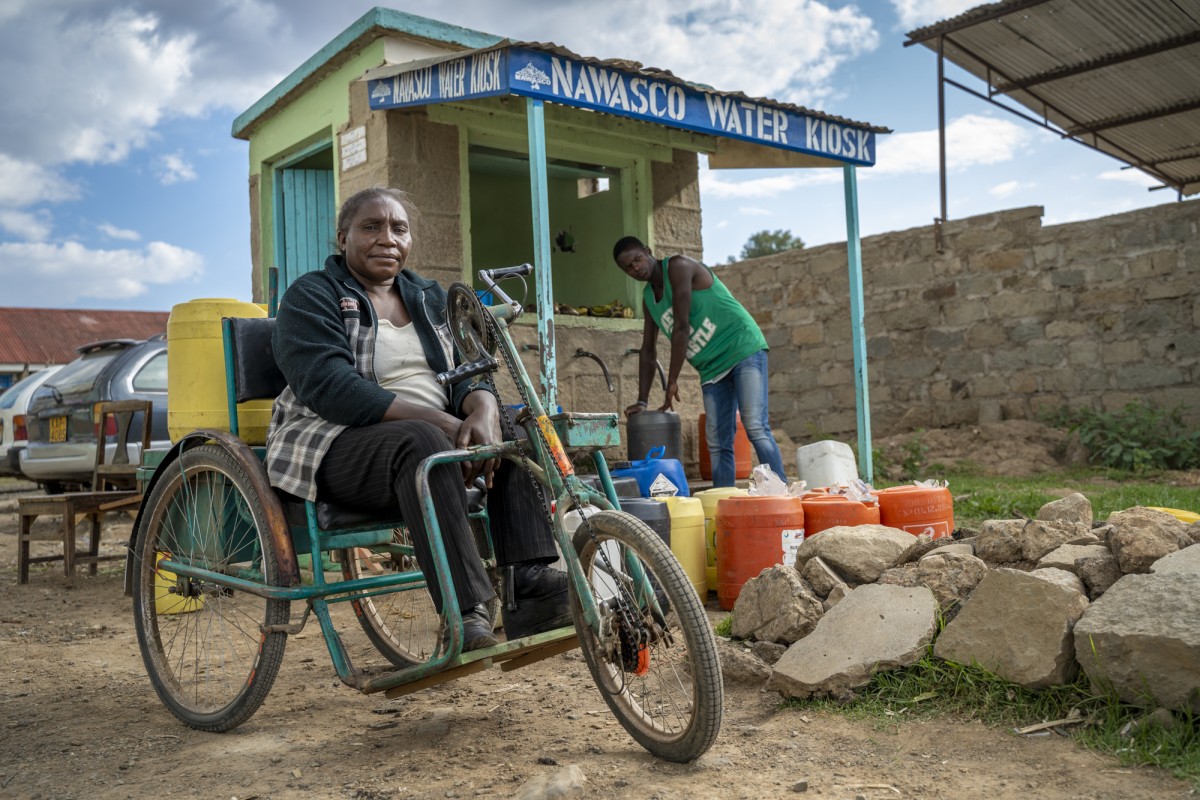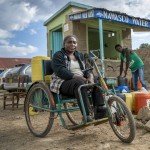Valentine Mombafi – a seat at the table: turning the table
‘I feel proud because I have become so vocal in the community’ shares Valentine about having her voice heard on decision-making levels regarding water and sanitation.

Woman and girls are not always heard or are able to participate in decision-making processes
When it comes to having the opportunity to voice your concern or participate in decision-making processes, women and girls do not always have this opportunity. However, women and girls are disproportionately affected by poor water and sanitary facilities, and are most affected by water issues. While women are usually responsible for water collection within the family, and have more household responsibilities.
Now imagine that women with a disability, are even more affected and ‘left behind’. Read the story of Valentine Mombafi, a woman with a disability, and how she turned the tables.
Valentine Mombafi: using her influence to bring forward water issues of women
‘We didn’t know about public participation, we didn’t know about budgeting. Women didn’t know anything about the government.’ This changed when she was invited to participate in water management and meetings about WASH (water, sanitation & hygiene) as part of the Watershed programme.
From the capacity strengthening training she received through the programme she learned to use her influence to bring forward the water issues of women and people living with disabilities in Nanyuki (Kenya).

‘Nobody listens to us unless we have one of our own people there.’
Now part of the board, and a seat at the table
So far, Valentine has been successful in getting a water tank for a local school, has joined the board of the local water company and was part of the Laikipia East Budget Committee. As Valentine says, ‘Nobody listens to us unless we have one of our own people there’. Having a seat at the table is a great step forward.


